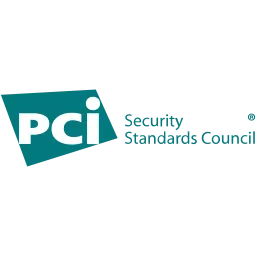The Future of Insurance Brokerage: Empowering Customers to Buy

Michele Grosso, Co-Founder and CEO, Democrance
The insurance brokerage industry is undergoing a significant transformation. The new mantra? “Stop selling insurance, help your customers buy insurance.” This shift is reshaping the role of insurance brokers, transitioning them from mere salespeople to invaluable advisors and facilitators in the insurance-buying process.
The Evolution of Insurance Brokerage
The roots of insurance brokerage can be traced back to the 17th century when brokers helped ship owners find insurers willing to cover their risks for sea voyages. Fast forward to today, and their primary aim remains unchanged: helping customers find the most suitable insurance coverage for their needs by offering advice, comparing policies, and negotiating pricing with insurers.
However, the methods and tools at their disposal are evolving rapidly, driven by technological advancements and changing customer expectations. Let’s explore how these changes are shaping the future of insurance brokerage.
Technological Innovations Empowering Customers
1. Insurer Distribution Platforms
While email communications between brokers and insurers are still commonplace, we’re seeing a rise in digital portals provided by insurers. These platforms allow brokers to quote and bind policies quickly and efficiently. The result? A faster, more streamlined process that enables brokers to present quotes to their customers and complete sales more rapidly. This speed and efficiency give both insurers and brokers an edge over those still relying on traditional email exchanges.
By accelerating the quotation process, these platforms help customers make informed decisions more quickly, aligning with the goal of helping customers buy insurance rather than being sold to.
2. Comparison Portals
Many brokerages are building internal comparison tools or partnering with InsurTechs to create sophisticated quotation systems. These tools significantly reduce the workload on brokers by allowing them to enter customer information and requirements just once, automatically pulling real-time quotations from multiple insurers.
This approach embodies the principle of helping customers buy insurance by presenting them with a clear, comprehensive view of their options. It empowers customers to make informed decisions based on a wide range of choices, all tailored to their specific needs.
For this system to work effectively, insurers need to be prepared with APIs for their products, highlighting the importance of technological readiness in the modern insurance landscape.
3. Post-Sales Self-Service Portals
The future of insurance brokerage extends beyond the point of sale. Increasingly, customers prefer self-service tools for policy administration, endorsements, and claims. By providing these portals, brokers are putting the power directly in the hands of their customers, allowing them to manage their insurance needs on their own terms.
This self-service approach aligns perfectly with the idea of helping customers buy (and manage) insurance, rather than relying on brokers for every small task or inquiry.
4. AI-Powered Chatbots
Artificial Intelligence is set to play a crucial role in the future of insurance brokerage. AI chatbots and virtual assistants will handle routine customer service inquiries and claims, freeing up brokers to focus on more complex advisory roles.
These AI tools don’t just automate processes; they provide customers with instant, 24/7 access to information and assistance. This constant availability helps customers feel more in control of their insurance journey, supporting the shift from selling to helping customers buy.
5. Rise of Embedded Insurance
Perhaps one of the most significant shifts in the insurance landscape is the rise of embedded insurance. In this model, insurance is seamlessly integrated into non-insurance platforms such as travel websites, retail apps, or fintech services.
While this trend might seem to reduce the need for standalone brokerage services, it actually presents an opportunity for brokers to evolve their role. By partnering with these platforms or advising on the integration of embedded insurance, brokers can ensure that customers have access to appropriate coverage at the point of need, truly helping them buy insurance in the most convenient way possible.
The New Role of Insurance Brokers
As these technological advancements reshape the insurance landscape, the role of insurance brokers is evolving. Rather than focusing on selling policies, brokers of the future will:
- Act as trusted advisors, helping customers navigate complex insurance needs
- Leverage technology to provide customers with more options and clearer information
- Focus on personalized service for unique or complex insurance requirements
- Continuously educate customers about new risks and insurance solutions
- Advocate for customers in the claims process, ensuring fair and prompt settlements
Embracing the Future
The future of insurance brokerage is not about selling harder or faster. It’s about creating an environment where customers feel empowered to make informed insurance decisions. By embracing technological innovations and shifting their focus from selling to helping, insurance brokers can remain relevant and valuable in an increasingly digital world.
Remember, the key to success in the evolving insurance brokerage landscape is to stop selling insurance and start helping your customers buy it. By doing so, brokers can build stronger, longer-lasting relationships with their clients and continue to play a crucial role in protecting individuals and businesses against life’s uncertainties.





